About Hypertensive Retinopathy
Hypertensive retinopathy is an eye condition caused by chronic high blood pressure (hypertension), which damages the blood vessels in the retina. The retina is the light-sensitive tissue at the back of the eye that is crucial for vision. Prolonged high blood pressure puts strain on these delicate blood vessels, leading to changes that can impair vision.
Symptoms of Hypertensive Retinopathy
- Blurred Vision
- Reduced Vision
- Double Vision
- Headaches
- Floaters
- Sudden vision loss
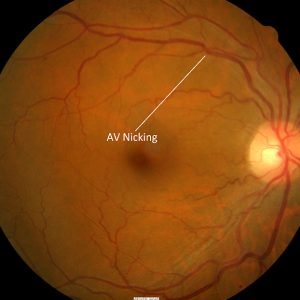
Causes of Hypertensive Retinopathy
- Chronic High Blood Pressure (Hypertension): Prolonged elevation of blood pressure damages the small arteries in the retina, causing them to narrow, harden, and become less efficient at delivering oxygen and nutrients to the retinal tissue.
- Severe or Uncontrolled Hypertension: When blood pressure remains extremely high or is poorly controlled over time, the damage to the retinal blood vessels accelerates, increasing the risk of hypertensive retinopathy.
- Atherosclerosis: The hardening and thickening of arteries due to atherosclerosis can further reduce blood flow to the retina, compounding the effects of hypertension.
- Kidney Disease: Kidney diseases, particularly those related to hypertension, can increase the risk of hypertensive retinopathy by worsening blood pressure control.
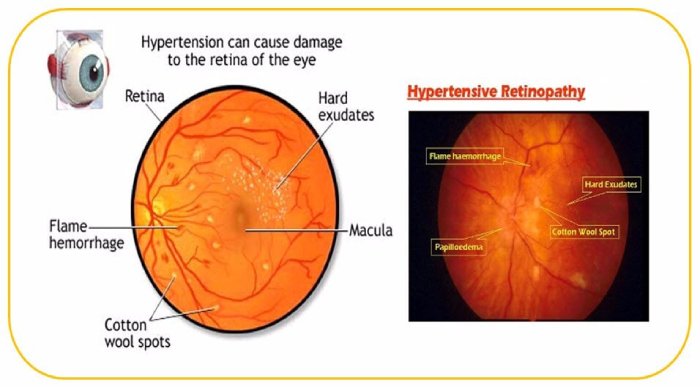
Our Hypertensive Retinopathy Treatment Options
- Managing Underlying Conditions: If hypertensive retinopathy is associated with other conditions like diabetes or kidney disease, managing these underlying issues is vital. This may involve stricter control of blood sugar or specific treatments for kidney problems.
- Regular Eye Exams: Ongoing monitoring by an ophthalmologist is essential to track the progression of hypertensive retinopathy. Regular eye exams allow for early detection of any worsening of the condition and enable timely intervention.
- Laser Treatment (Photocoagulation): In severe cases, where the blood vessels are significantly damaged and fluid or blood leaks into the retina, laser treatment may be necessary. This procedure helps seal leaking blood vessels and prevent further damage to the retina.
- Surgery (Vitrectomy): If there is significant bleeding into the eye (vitreous hemorrhage) or retinal detachment, a vitrectomy may be required. This surgery removes the blood-filled vitreous and replaces it with a clear solution to restore vision.
When You Need
Treatment Hypertensive Retinopathy
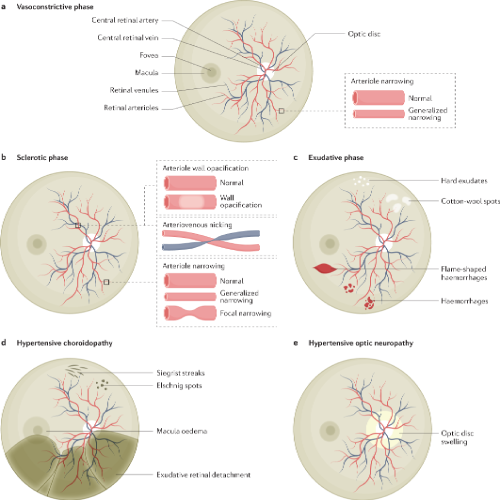
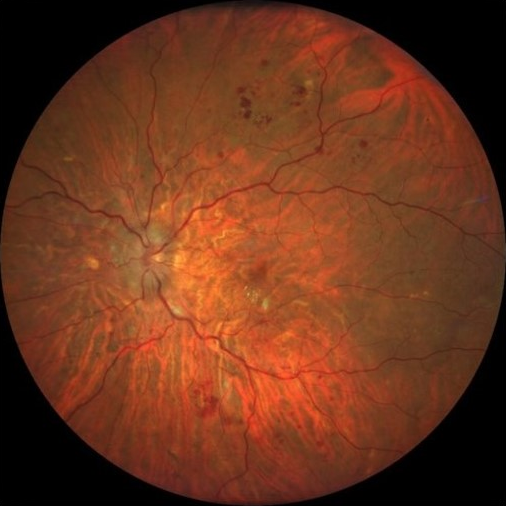
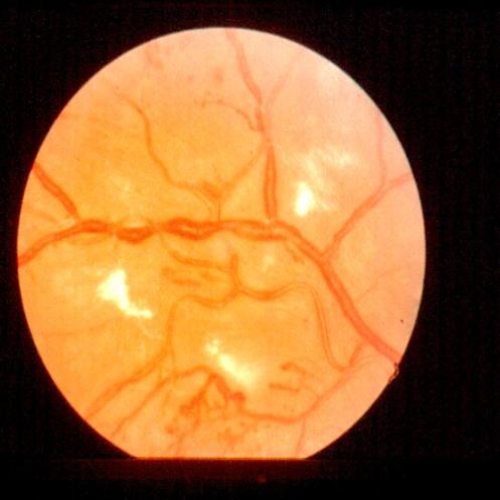
- Preventing Vision Loss: Hypertensive retinopathy can lead to serious vision problems, including partial or complete blindness. Early treatment helps preserve vision and prevents further deterioration.
- Slowing Disease Progression: Managing high blood pressure can slow the progression of hypertensive retinopathy. Untreated hypertension can lead to worsening damage to the retinal blood vessels, increasing the risk of complications.
- Reducing Risk of Complications: High blood pressure can lead to additional eye complications, such as retinal detachment, vitreous hemorrhage, or optic nerve damage. Effective treatment can minimize these risks.
- Improving Overall Health: Controlling high blood pressure has widespread health benefits beyond eye health, reducing the risk of heart disease, stroke, kidney damage, and other serious conditions.
Frequently Asked Questions
Early stages may not present noticeable symptoms. As the condition progresses, symptoms can include blurred vision, floaters, reduced vision, double vision, and, in severe cases, sudden vision loss.
Anyone with chronic high blood pressure is at risk, especially if hypertension is poorly controlled. Additional risk factors include diabetes, age, atherosclerosis, kidney disease, and lifestyle factors like smoking.
Diagnosis typically occurs during a comprehensive eye exam performed by an ophthalmologist. They will examine the retina for changes in blood vessels, look for signs of leakage or swelling, and may use imaging tests for further evaluation.
Yes, managing blood pressure through lifestyle changes and medications can prevent or slow the progression of hypertensive retinopathy. Regular eye exams and monitoring of blood pressure are also essential.
24 / 7 HOURS SERVICE
